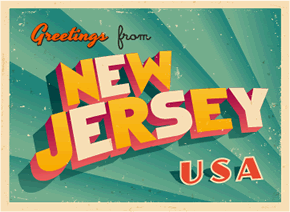Why the Atlantic City Casino Closures Aren’t a Bad Thing
Last week, the Revel Casino closed the doors on what had been (for them) a short time frame on the Atlantic City, NJ casino scene. Just barely opened two years ago (April 2012, to be exact), the Revel was supposed to usher in a new era of casino gaming on the Jersey Shore. Instead the Revel, fraught with debt, never caught on in with the crowds in Atlantic City.
The Revel isn’t the only victim for the Atlantic City casino industry. Earlier this year, the Showboat was closed down by its parent company, Caesars Entertainment, and the Atlantic Club, after years of problematic operation (and a failed deal with PokerStars), ended operations at the beginning of 2014 through bankruptcy proceedings (bought out by Caesars and Tropicana Entertainment). Add in the expected closure of the Trump Plaza next week and there are many in the casino industry questioning whether Atlantic City will survive.
Although the loss of jobs is tremendously hurtful to the Atlantic City economy and the city’s residents, there are many reasons why the situation has become what it is in Atlantic City and how they can come out better on the other side. All in all, the closures in Atlantic City aren’t a bad thing.
A Glut in the Market
Long a haven for illegal gambling of different sorts (bookmaking, slots, and numbers running), the state of New Jersey first decided against offering legalized casino gaming in the state in 1974. Only two years later, however, voters changed their minds and decided to allow casino gaming based in Atlantic City. This led to a boom in casino creation and, eventually, revenues that approached the $5 billion mark in the mid-2000s.
That means, for almost a quarter century, Atlantic City was the only game in town (in the mid-70s, only Nevada also offered casino gaming). They enjoyed that position for quite some time but, eventually, surrounding states began to look to casino gaming for critical revenues in their states’ coffers. Fast forward the clock to today and every state that surrounds New Jersey (Delaware, Pennsylvania, New York, Maryland) and other areas that Atlantic City used to pull gamblers from (Connecticut, West Virginia, Ohio) now have a casino gaming industry of their own.
It is a simple fact. Say you live in Pennsylvania, where casinos are as close as Pittsburgh, Philadelphia, Wilkes-Barre and the Poconos (among others). Why would you go all the way to Atlantic City when you can do the same thing closer to home (and, on a side note, benefit your own state’s revenues)?
12 casinos in Atlantic City was way too many, even though at one point (think 1970s-1990s) it served its purpose well. The closing of some of the casinos in Atlantic City will help to streamline the industry, making it stronger as the process unfolds. Yes, there is the unfortunate side effect of less choice for customers (and, it bears mentioning again, the job losses) but, overall, the casinos that come out on the other side will be stronger from those closures.
Atlantic City Needs a Facelift
With the closure of some of the casinos in the city, now would be the time that Atlantic City could get a well-needed facelift. One of the comments that are frequently heard from poker players is that Atlantic City is less than the most desirable place to go to play (I’d use some of the stronger words that have been said, but it would be redacted to the point that it would be indecipherable). Outside of the casinos, the city is a bit on the rough side; crime rates are on the higher end and there is little to do other than gamble. It’s time for those in charge on the Boardwalk to take a look around and see what they can do to make the city more palatable for its customers, most likely through infrastructure improvements and non-gaming activities for visitors.
One of the things that could be changed is having some sort of major airport near the city. While there is a small airport nearby, Atlantic City needs a larger (perhaps international) airport to cater to prospective gamblers. At this time, Philadelphia, Newark and New York City are the best stopping points for gamblers; the minimum distance for any of these choices is 56 miles and, if the traffic is bad (as it is usually), it can take a couple of hours to reach your destination.
Final Thoughts
The closure of casinos in Atlantic City isn’t the tipping point of doom that some assume it will be. Through the contraction of the industry (something that happens in every business setting at some point), the Boardwalk should revive itself quite well, perhaps even to the point of pulling back in some customers that might take “closer to home” options that have come around. While their revenues will never approach their Golden Era of the mid-2000s, Atlantic City should still be a viable player in what has always been a highly competitive arena.






